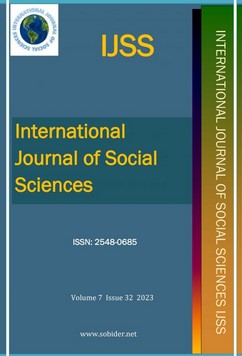Avrupa Birliği Dil Eğitimi Politikalarının İncelenmesi
Examination of the European Union Language Education Policies
Author(s): Ayşegül CEVAHİR, Osman TAY, Ümit BÜLÜÇSubject(s): Foreign languages learning, Language acquisition, Higher Education , EU-Approach / EU-Accession / EU-Development, Distance learning / e-learning, Pedagogy
Published by: SD Yayınevi
Keywords: European Union; Education; Language Education;
Summary/Abstract: In the information age, the phenomenon of globalization has affected educational programs. It has become important to educate global-minded participants in schools. Changes in science and technology affect human life and education, which is the process of human education. Educational systems that are under the influence of many economic, social and cultural conditions are facing changes. The act of learning, which gains continuity throughout life by replacing traditional learning processes with information and communication technologies support environments, eliminates the need for people to be in a fixed environment to achieve this. It is aimed to Decouple the educational programs with the educational projects carried out between the universities of the member states of the European Community and to make education more qualified. Thanks to the academic networks in the European Union, the student-teacher relationship participating in the education and learning process is being carried to interactive multi-media. At this stage, information measurement and evaluation systems are being designed to test the knowledge acquired after learning, the validity and reliability of which are supported by information technologies. Individuals now believe that they save time by moving the physical mobility they perform for learning and educational purposes to a virtual environment and that they have a more effective and interactive learning and evaluation experience. Lingua (Language Learning and Teaching) Program; It is one of the eight sub-programs of Socrates, the EU General Education Program, which aims to teach the languages spoken in the member states of the Community as a foreign language to the citizens of the European countries that are members of these programs. The European Commission has developed different ways and methods to improve foreign language learning. e-Europe launched an initiative in 2000 with the name of using communication and information technologies such as the Internet and the web in all sectors with a decision taken by a commission. Thus, it is planned to establish a virtual higher education network between universities, open and distance education institutions by the end of Dec 2020. The new expectations that have emerged about the widespread use of media tools in education in Europe have turned into an inevitable, low-cost and socially necessary paradigm within the scope of the information society.
Journal: Uluslararası Sosyal Bilimler Dergisi
- Issue Year: 7/2023
- Issue No: 31
- Page Range: 365-381
- Page Count: 17
- Language: Turkish

